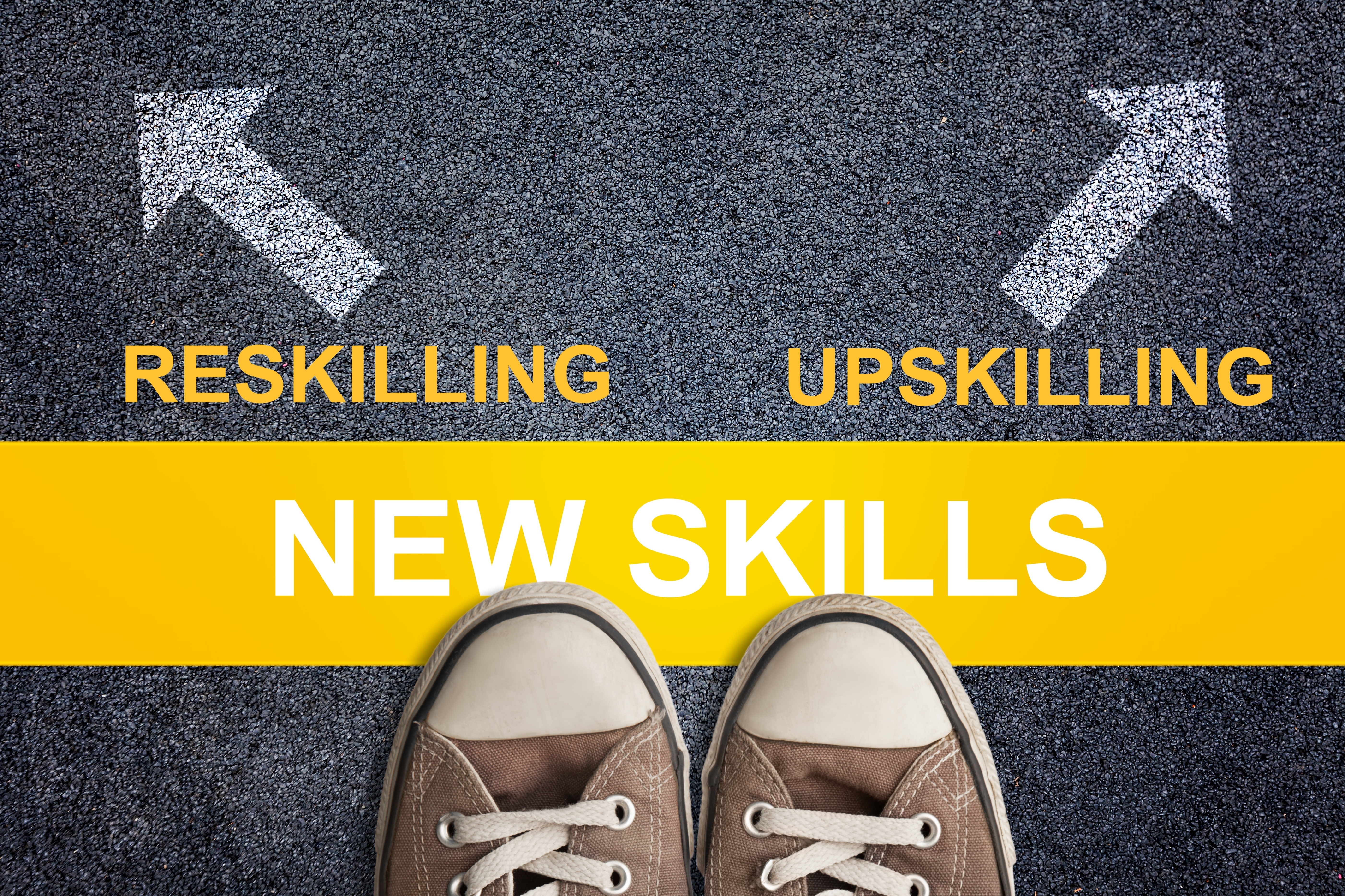17 July 2023 |
Professional update: from the upskilling to the reskilling
The non-stop evolution of the technology, the need of production and consumerism in a more sustainable way and even the obligation of being an enterprise that is socially responsible is changing the professional profiles and putting the employees in a constant update of their own skills and abilities.
This is achieved through an additional professional training to help the employee perform his or her duties better (what is known as upskilling), or by acquiring new skills or abilities to adapt to changes and cope with crisis and uncertainty (reskilling). Adaptation to change is among the skills that have become more important in recent years, but also one of the most difficult to find among professionals.
When training their employees, companies need to take care of both hard and soft skills. The first ones are the technical skills of an employee that allow him to manage a specific job. This is the case for various management software, accounting skills, oral expression, or language skills. Soft skills relate to aspects such as emotional intelligence, communication skills, change management and other personal or interpersonal skills that can help the employee develop effectively in a modern enterprise.
The European Commission urge the EU governments (Recommendation of the European Parliament and of the Council of 18 December 2006 on key competences for lifelong learning) to introduce permanently the lifelong competences in their learning strategy:
- Communication in mother tongue: the ability to express and interpretation of concepts, thoughts, feelings, facts, and opinions in both oral and written forms.
- Communication in a foreign language: as the above, but it also includes the ability of mediation (such as resume, quote, interpret or translate) and the intercultural comprehension.
- Mathematical, scientific, and technological competence: proficiency in calculation basis, understanding the nature and abilities to apply the knowledge and the technology to what is perceived as a human need (such as medicine, transport, or communication).
- Digital communication: safe and critical use of information and communication technologies (ICT’s) for work, leisure, and communication.
- Learning to learn: ability to manage the own learning in a effective way, either individually or in groups.
- Social and civic competences: ability to participate in an effective and constructive way in the social and professional life of each one and engage in an active and democratic participation, especially in increasingly diversified societies.
- Cultural awareness and expression: ability to appreciate the creative importance of ideas, experiences, and emotions through different media, such as music, literature, and the performing and plastic arts.


